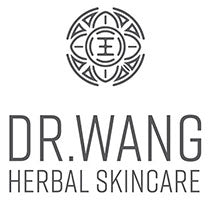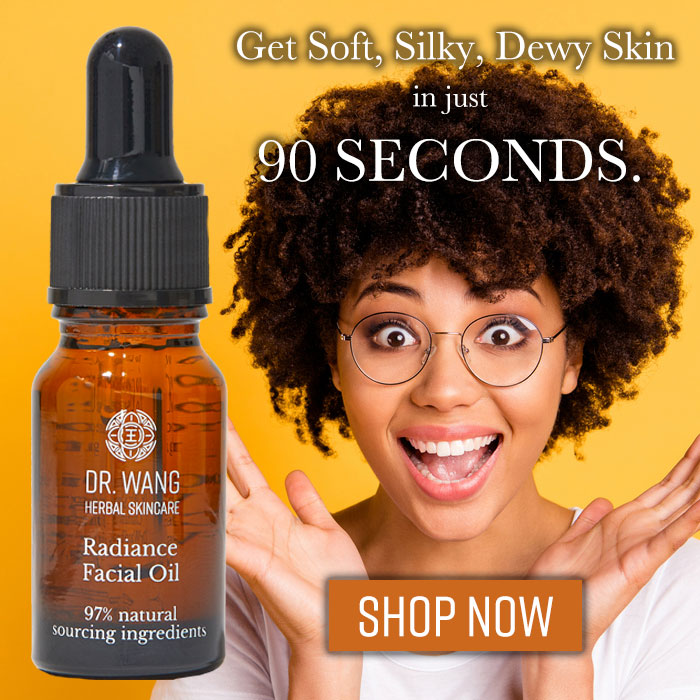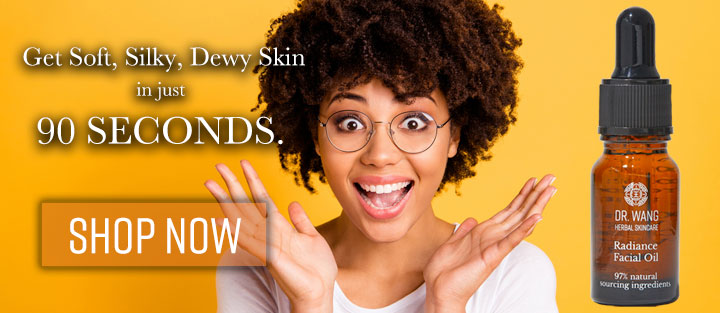We recently had the opportunity to speak with Becky Kuehn, founder of Oncology Spa Solutions. Our interview covers Becky’s cancer diagnosis, her journey to becoming a Licensed Master Esthetician and Cosmetologist, Becky’s work with cancer patients, and much more!
Q: What is your background as an Esthetician?
Becky: As a child, I was always obsessed with taking care of others, playing with their hair, make-up and all the fun girly things. I would cut my baby dolls hair (until there wasn’t any left) and loved to do make-up on my Barbie dolls. (I didn’t have any sisters and my brothers weren’t having any of it). I wasn’t sure what I would do or how I was going to make it my life choice, but I wanted to figure that out.
Right out of high school I enrolled in Cosmetology school. About halfway through the course, I was diagnosed with a rare form of uterine cancer at the age of 18. It changed my life and the view of my future. I questioned whether I should stop and enroll in nursing or continue with cosmetology and use this experience to help those with cancer in the future.
I decided to finish what I started and in 1982 with my new license in hand, I went on to try out all the wonderful things you can do with a Cosmetology license. I started by doing hair, make-up, skincare and nails in a few different salons. It wasn’t long before my “love” showed itself and that was skincare.
I loved the hands-on with skin and make-up. Next, I was hired by Estee Lauder as a traveling Makeup Artist on an expert team in the Northwest, followed by an 8-year “stint” with Nordstrom in the Cosmetics Dept in Sales, Management and then a Buyer in San Francisco.
By then, my growing children were calling to me and I knew that if I didn’t make changes asap, they would be grown and gone in a blink. So I left the Corp side of things and we moved back to WA. By then, the beauty industry made a change and divided up the different aspects of Cosmetology into separate licenses: Hair, Skin and Nails. So although I had the full 2000 hours and could have been grandfathered in, I missed the deadline by 6 months.

Q: When did you make the change to Oncology Esthetics?
Becky: When I found that I had missed the above deadline I did some research to find the best school for me to go back and get my Esthetic training and license. I chose The Euro Institute in Renton, WA which was owned and started by AnneMarie Camenzind from Switzerland who had a dream to create a holistic and unique kind of Esthetic school. She was an amazing person, a talented Esthetician and a beautiful soul.
While I was there, she was dealing with a cancer diagnosis and it made me think of the promise I made all those years ago to find a way to bring Esthetics care to those with cancer. I reached out to my local American Cancer Society and became a volunteer in their Look Good Feel Better program. From the very first class that I did, I knew I had found my “what” (the very thing I was meant to do).
I loved it. I loved the ladies that I met so much that I continued volunteering for 4 years before deciding that we all needed more. I approached the manager of that location and asked for a meeting to discuss putting together a program so that we could offer more for those in need.
Q: Many people do not know about the impact cancer can have on skin health. What are the most common skin issues that arise and how does Oncology Esthetics address those concerns?
Becky: Estheticians work with the skin, which is the largest organ of our body. It is wondrously made, has several functions (secretion, heat regulation, absorption, protection, elimination, sensation, vit D and melanin production) and when it is healthy, it works great all on its own.
Yet when someone is going through cancer, the treatments and the stress that come along with it, the skin really takes a hit. So, an oncology-trained Esthetician learns how to protect the barrier thereby assisting the skin with its natural functions.
We focus on boosting the protection and immunity functions by ensuring that the skin barrier is intact and healthy. When someone is having cancer treatments, the common barrier issues are thinning, fragile skin, xerosis (extreme dryness), sensitivity, redness, and rashes. The skin can wound easily.
With infection being an issue, a potential side effect and even the killer in some cases, it’s important to help prevent skin breaks or weakness in the barrier protection. Our goals are to: hydrate, protect, strengthen, calm and soothe. We do that with safe, clean products designed to meet these goals.

Q: Is there an Oncology Spa Solutions success story that sticks out in your mind?
Becky: I am blessed to have many. It is such a wonderful thing to be able to help someone who is hurting. But my first, and the one that put me on my path, was Jatin. He was referred by a mutual friend and I made a home visit to see him.
Jatin was diagnosed with stage 4 stomach cancer and none of the treatments had worked. The hospice bed had been ordered and his days were numbered. In our initial meeting, he shared with me that his skin was so dry that it was uncomfortable. I simply applied a hydrating body cream to his hands and arms as we spoke. When I went to leave and shake his hand, he took my hand, kissed it and held it to his face saying “you don’t know what you just did for me, I was thirsting for touch like that.”
I barely made it to the car before bursting into tears. I sat there for a moment wondering how did I impact someone like that in just 15 minutes and how did he impact me? The simple answer was “human touch.” When trained, we have the ability to be the person that can connect with them on a human level as well as take care of the skin needs and concerns.
I ended up going back to see him every week until he passed. His wife told me later that after my visits, his pain would be gone for several days. I loved that man so much and am grateful for all that he taught me. And, THAT is why I do what I do.
Q: Can you describe what makes Oncology Esthetics unique?
Becky: Well, first each client or patient that goes through cancer will have their own unique way of responding; both physically and emotionally. So, in oncology esthetics training we do not teach “protocols” or “cookiecutter” services.
Instead, we teach how to ask the right questions to find out what each person is experiencing and then, how/when to customize the service to meet their needs. It causes us to be present, mindful, really listen and be in tune with each person we see. When done right, it can be as relaxing and beneficial for the Esthetician as it is for the client.
Q: What was the process of getting Oncology Esthetics trained for medical purposes?
Becky: Because my treatment rooms were in hospitals and a cancer center, I was working directly with medical staff on a daily basis. That required me to know what I was talking about when it came to the skin reactions that a patient was having during cancer treatment. I learned through my training and volunteer work first, and then many years of research and hands-on (I have had my rooms there for 9+ years).
I have taken every class offered on the subject, although there are not many available. I am a lifetime learner, seeking to learn new things every day. For example, I have taken courses from the American Cancer Society, NCI, LiveStrong, Skin Cancer Foundation, The Truth about Cancer, to name a few. I also hold Certifications as a Holistic Cancer Educator through Beat Cancer and a Hope Coach through Light University.

Q: You mentioned the importance of becoming “Oncology Trained.” What exactly does it mean to be Oncology Trained and why is that relevant for health professionals?
Becky: Again, it is imperative to know the details and information about what a client/patient is going through in order for us to offer services that will meet their individual needs while being aware of safety issues, as well. When I teach, I tell the students to think about it from a client standpoint: who would they trust (or rather go to)?
An esthetician that listens and has (at least) heard of what you are going through and knows how to help vs one with a blank stare on their face. Estheticians are “skincare specialists,” we need to know and understand the skin as well as how to help or recognize when to refer to a Dermatologist.
When the client is going through cancer treatments, we are able to strengthen the barrier, give relief and allow the client to continue with treatment and not have a delay in dose (cancer treatments), as well as giving them back some quality of life.
Many clients have shared how thankful they were that they now could go back to work without feeling like everyone was staring at their face, giving them quality of life, privacy and a sense of normalcy.
Q: Is skincare product selection a part of Oncology Esthetics?
Becky: Absolutely! First, I believe that as Estheticians using and recommending products, we need to be responsible for what we are using and why. This client will be much more sensitive to everything. Even products, ingredients and smells that they could use before, they might not be able to tolerate now.
We review what the client is currently using and add only what is most important or missing right now. We do not sell them a bunch of new products and we keep it really simple; only one new product at a time as needed. We educate them on ingredients and proper skin care during this cancer process and then help them transition to other products when done, if/when needed/appropriate.

Q: What do you look for in terms of skincare ingredients? Do you recommend any skincare products in particular?
Becky: As I mentioned earlier, one of the functions of the skin is absorption, so it’s very important what we put on our skin. I have been the ingredient “nerd” or “fanatic” for many years, long before it became a popular subject to discuss. I look at the ingredients and what is in the product, not the name that is on the label.
I have researched ingredients and products for many years and had to cherry-pick one or two products from a line in order to find products that I could use safely when working with someone who has compromised skin and health. I did not find an entire line that was something I could recommend for someone in what I call Phase 2 (those in active cancer treatment and with the most sensitive and delicate skin conditions).
You can see the lines that I currently work with and their focus product(s) on the website here.
I recommend staying with pure, simple ingredients that can protect the barrier without causing any stress. So we don’t do anything aggressive: no peels, microderm, laser, microneedling, or extractions.
Q: Are there any skincare ingredients you would avoid at all costs?
Becky: I recommend avoiding anything that would break down the barrier of the skin or could cause any toxicity. I started with “the dirty dozen” ingredient list many years ago and have added some new ones since then.
This is the original Dirty Dozen:
- BHA and BHT
- Coal tar dyes: p-phenylenediamine and colours listed as “CI” followed by a five-digit number
- DEA-related ingredients
- Dibutyl phthalate
- Formaldehyde-releasing preservatives
- Parabens
- Parfum (a.k.a. fragrance)
- PEG compounds
- Petrolatum
- Siloxanes
- Sodium laureth sulfate
- Triclosan
Q: Can you tell us a little more about how interested individuals can become trained in Oncology Esthetics?
Becky: We offer live 3-day classes in various locations across the US and also have an online course for those that are not able to travel or don’t have a class in their state.
Q: What is your primary goal in 2019?
Becky: My passion, goal and dream is continuing with the “mission” of having as many oncology-trained professionals available to help those in need. This year we also added in education and information for medical staff and patients. I meet people all the time in hospitals and cancer centers who say “wow, I didn’t even know this existed. I would have loved to have known about this for my patient, my parent, my child, my friend, etc.
In June of 2019 we launched a new US association; SPOT-ON (Spa Professionals Oncology Trained, Oncology Navigators) that will connect spa professionals that are oncology-trained for support and continuing education, and it will also have a locator on the website so that cancer centers and patients can find someone to help them when they need it.
I get contacted all the time by patients or staff looking to connect with someone in their area that is trained and can help. Just yesterday I had another cancer patient, this one from upstate NY looking for someone and I was so happy to be able to share and connect. I can’t wait until we fill that locator up!

Q: Is there anything else you would like to share about your work?
Becky: I love what I do and am so grateful and blessed to work with the people that are going through cancer or those that want to learn how to do what I do.
There are 15.5 million people in the US that are considered cancer survivors and another 1.7 million newly diagnosed each year. There is a gap in care for what we do and many hands are needed to help in this mission.
Q: Where can folks go to learn more about Becky Kuehn, Oncology Esthetics, and Oncology Spa Solutions?
Becky: You can find details on the website and be sure to watch my intro video that tells a bit more about me and why I do what I do. For additional information please see the following:




